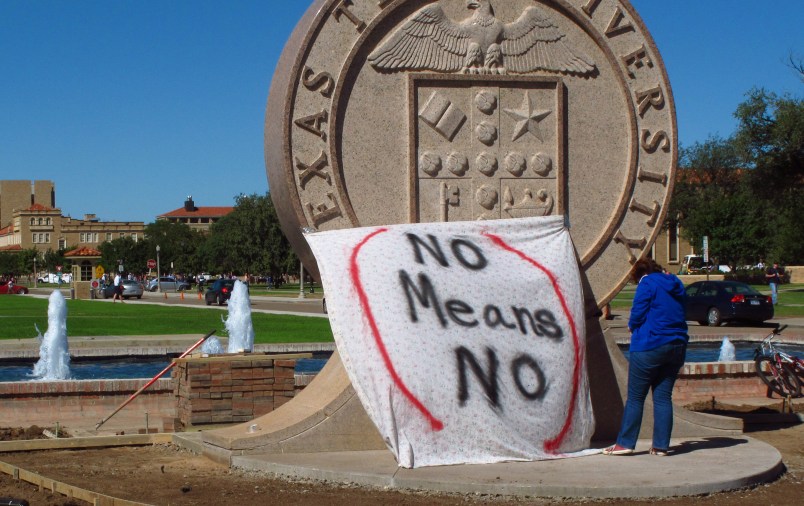DES MOINES, Iowa (AP) — A former Drake University student who says the Des Moines-based university failed to consider his allegations of sexual assault against a female student but believed her allegations against him is challenging federal guidelines for investigating such cases.
The man, identified only as John Doe from Illinois in a lawsuit filed this month, was expelled from Drake in his senior year after the university investigated allegations stemming from a night of drinking in October 2015. He was never charged with a crime.
The case is one of several filed against colleges in recent years that complain largely of reverse discrimination and unfair disciplinary proceedings after a 2011 letter from the U.S. Department of Education’s Office for Civil Rights that told schools how they should treat sexual assault cases.
The guidance, known as the “Dear Colleague Letter,” followed years of complaints that colleges weren’t taking sex assault allegations seriously enough. Among other things, the letter advised colleges to rely on a preponderance-of-evidence standard instead of a beyond-a-reasonable-doubt standard when investigating sexual assault claims. That means a student can be disciplined if a school determines it was more likely than not that a sexual assault occurred.
“As a result of the Obama administration’s directive, there has been a surge in colleges and universities mishandling investigations and wrongfully prosecuting male students for fear of losing federal funding,” said John Doe’s attorney, Andrew Miltenberg, who has handled dozens of other similar cases across the country.
Government statistics continue to show women are frequent victims of a sexual assault on college campuses. A Bureau of Justice Statistics study released earlier this year shows an average of 21 percent of undergraduate women across the nine schools participating in the study reported experiencing sexual assault since entering college and a very small percentage are reported to school officials especially when alcohol or drugs are involved.
Drake University determined that John Doe made his allegations of sexual assault against the female student, identified as Jane Doe, in retaliation for her claims. Court documents say his allegations were never pursued by the university’s mandatory reporters.
John Doe alleges in his lawsuit, filed Dec. 1 in U.S. District Court in Des Moines, that Drake University violated his constitutional due process rights and the federal sex discrimination law known as Title IX, among other things. He wants to be paid for emotional stress and loss of educational and career opportunities in an amount to be determined at a jury trial. He also wants Drake to remove the expulsion from his college record.
The university said it a statement that it “strongly disagrees with the plaintiff’s depictions of the facts, actions, and alleged motivations of Drake employees and students involve.”
The statement said the university would not comment on specifics of the case.
“We look forward to sharing the facts and proving our commitment to the fairness of this process,” the statement said.
The Department of Education did not immediately respond to a message.
John Doe and his accuser knew each other but were not dating when on Oct. 8, 2015, when they ended up at the same bar after a night of drinking at different parties.
John Doe said Jane Doe initiated oral sex in the back seat of his car but he was so drunk he was unable to consent and faded in an out of consciousness. According to court documents, the woman admitted during a later hearing that she initiated the act without his consent.
The two students’ stories differ as to what happened after that. He says they went to his fraternity house room and she left soon after. She says he attempted to have sex with her.
She filed a sexual assault complaint against John Doe the next morning after initially going with a friend to a hospital for an exam, but then declining it.
Copyright 2016 The Associated Press. All rights reserved. This material may not be published, broadcast, rewritten or redistributed.



